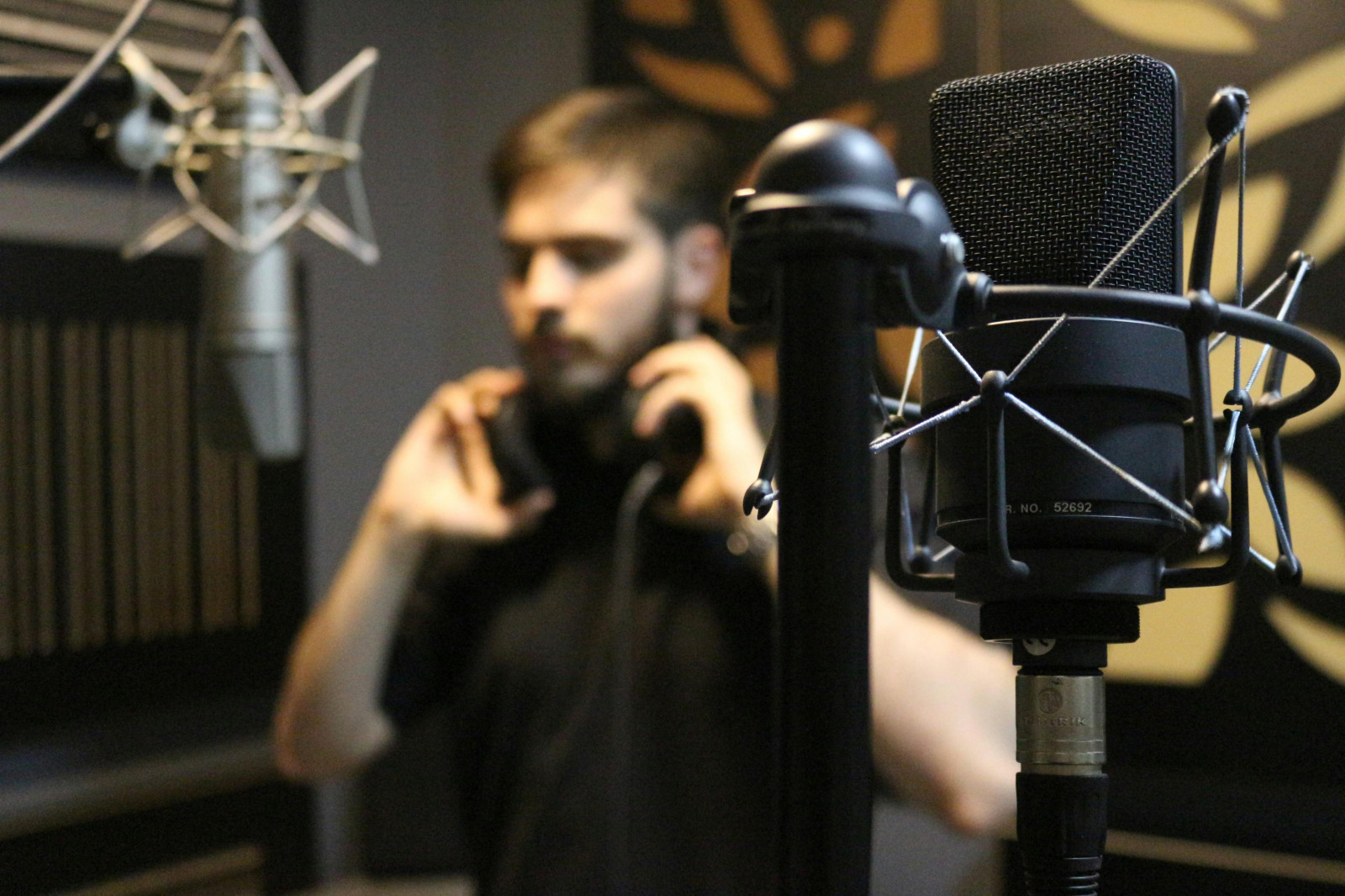Why don’t we hear popular music on popular podcasts?

Photo: Amin Asbaghipour

There are a number of popular podcasts that dissect popular music. One is called, well, Dissect. Others are Popcast, Song Exploder, and Switched on Pop. Podcasts like these usually play extended sections — if not whole recordings — of popular tracks, but beyond that, it is virtually impossible to find a podcast where you can hear music that is not a commissioned theme song or ‘royalty-free’. It is quite a different situation than radio, where music and talk go hand in hand. So far, no major podcast platform has been able to translate the magic of music talk radio to on-demand streaming.
While there may be medium differences between radio and podcasts that make their respective relationships with music unique, there are also legal hurdles that inhibit the inclusion of popular music on popular podcasts. If podcasting can overcome those hurdles, it could open up another revenue stream for the music industry and another consumer touchpoint for the podcast industry.
A brief history of music in radio
From its inception, radio was used to transmit both voice and music. In 1906, Reginald Fessenden transmitted both formats over a long distance from his Brant Rock, Massachusetts, station, and the radio medium was born. Once radio adoption hit the mainstream in the 1920s, the American Society of Composers, Authors, and Publishers (ASCAP) stepped in to administer music licences and ensure that songwriters and publishers were getting their dues each time their songs were performed live or played.
Rather than radio stations having to go through the arduous process of obtaining permission from publishers each time they wanted to play a song over the airwaves, Performance Rights Organizations (PROs), like ASCAP, could grant permission under a blanket licence, provided radio stations paid a fee for this blanket licence. Controversially, though, this only covers songwriters and publishers — while in the US, terrestrial radio pays no royalties to recorded music rightsholders. Despite this, this blanket licence is arguably responsible for removing a lot of the friction between talk and music formats in the radio medium.
Featured Report
MIDiA Research 2026 predictions Change is the constant
Welcome to the 11th edition of MIDiA’s annual predictions report. The world has changed a lot since our inaugural 2016 edition. The core predictions in that report (video will eat the world, messaging apps will accelerate) are now foundational layers of today’s digital economy.
Find out more…A briefer history of music in podcasting
Music in podcasting works a little differently. Most of the music you hear in podcasts is either work-for-hire or royalty-free music facilitated through a marketplace, like Soundstripe, and available to any user of that platform. Regardless of how much podcasters might want to include popular music in their shows, there is no easy way to licence it. They could email rightsholders individually, but this would be time-consuming and expensive — if those rightsholders respond at all. Moreover, using music in an on-demand podcast requires more, and more costly, licences (including mechanicals and master recording rights) than streaming or broadcasting a live-only radio show.
It was not always this way. In podcasting’s early days, plenty of podcasts likely played unlicensed popular music, because it was the wild wild west, and there was not a lot of copyright policing going on in the podcast space. Things are different now, which means podcasters have to be very careful about the music they use in their content. For both the music industry and the podcast industry, this seems like a missed opportunity.
How music could change podcasting
As radio listening declines and audio formats continue to compete with one another for limited consumer time, a bifurcation is happening that could end up weakening formats individually rather than making them stronger together. One of the reasons radio has been so dominant for a century now is because of the breadth of information and entertainment consumers could receive. Consumer attention was focused (though lean back much of the time, to be sure) on just one medium that was jam-packed with multiple formats, including both talk audio and music.
Today, a bifurcation is happening. Consumers have access to multiple formats in the same on-demand marketplace, but consumption is happening in silos. You either choose a podcast or a song — you cannot yet do both at the same time like you could with radio. That said, Spotify's Talk + Music feature attempted to shoehorn the two formats into the same space, but there were too many limitations, including the fact that the episodes could only be played on spotify. Consequently, it quickly fizzled.
Meanwhile, the music industry is looking for its next growth drivers — and licensing music for other formats is a big part of the picture. Maybe in order to refocus attention in audio, the podcast industry should consider pursuing blanket licences from PROs in addition to opting for innovative solutions, like Track Club, which offers subscription-based access to its cleared catalogue of long-tail recordings. There’s also FRESHSOUND, which promises instant licensing of commercially-released music. It may require an investment, but in the long run, it will establish podcasting as the on-demand substitute for radio while attracting on-the-fence music consumers. And as far as the music industry is concerned, another marketing driver and revenue stream is always welcome in such a low margin format.

There is a comment on this post, add your opinion.